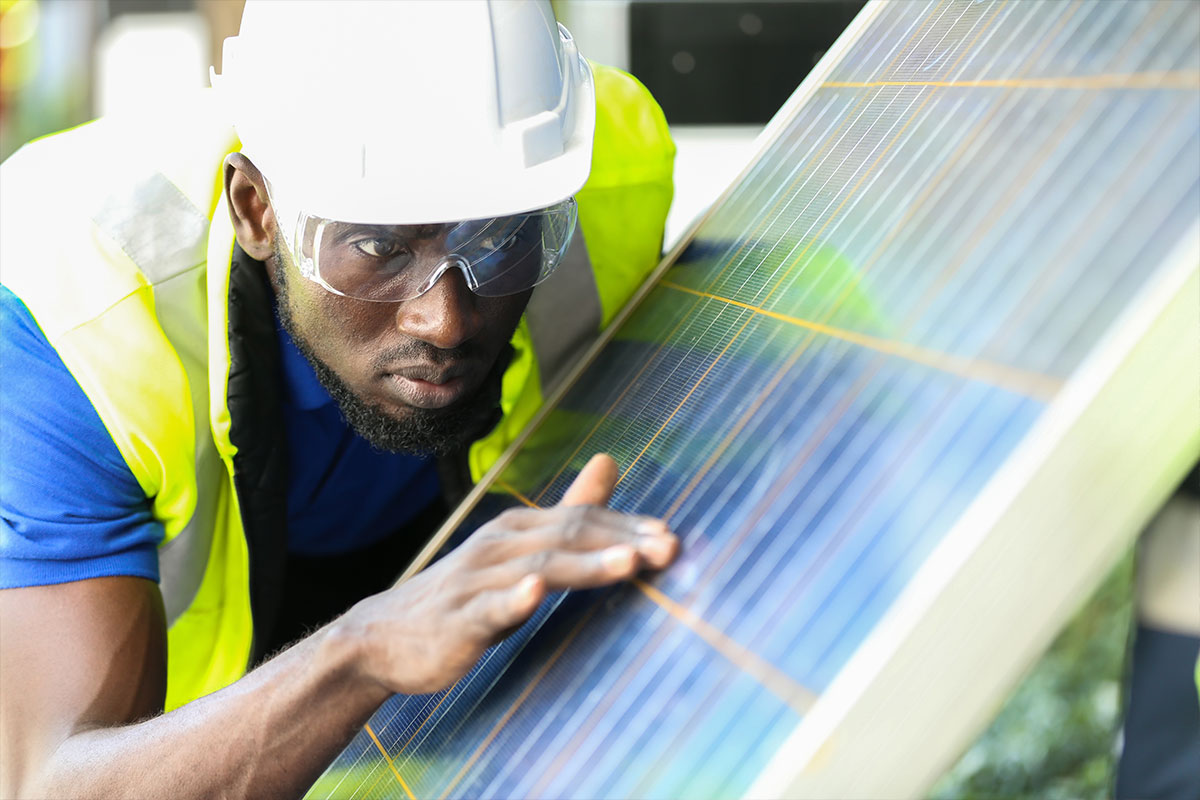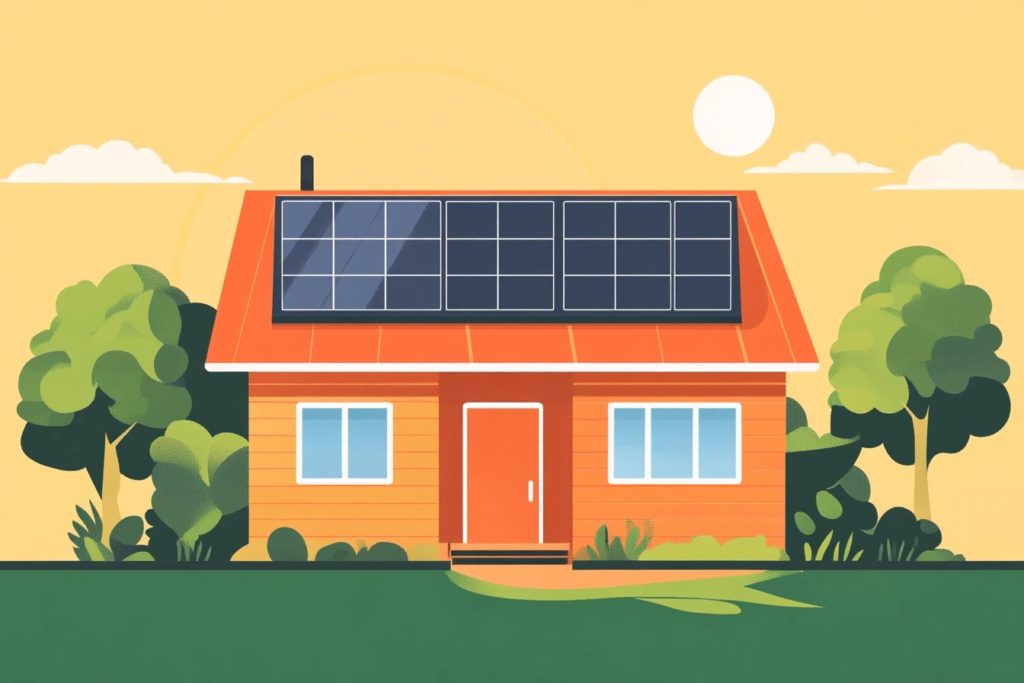Solar power continues to gain popularity in the residential market, as more and more homeowners find themselves saving money while doing their part to protect our environment. That said, many people are still seeking deeper knowledge about residential solar power systems before making an investment into a system of their own.
There are many websites offering solar energy resources these days, to the point where it can be difficult to tell which ones you should pay attention to. That’s why we put together this comprehensive guide to the best tools and resources available to help you enhance your understanding of the advantages and disadvantages of solar power for your home.
Solar Energy Industries Association
The Solar Energy Industries Association (SEIA) is a national trade association for the United States solar energy industry, with more than 1,000 member companies. This nonprofit organization develops and implements educational programs to advocate for the widespread adoption of solar energy, and also maintains a database of solar job openings across the country.
The SEIA has been around since 1974. The organization’s website has a wealth of information about industry news, an events calendar, state-by-state solar guides, initiatives, advocacy, and more. The website’s resources page reveals some highly beneficial information, including guides about solar industry data, solar market insights, fact sheets, major solar projects, and other valuable solar energy resources.
Energy.gov (The Office of Energy Efficiency & Renewable Energy)
Energy.gov is operated by the Office of Energy Efficiency & Renewable Energy, an office of the U.S. Department of Energy. This site is one of our favorite unbiased solar energy resources, as it includes several helpful guides, like this one about planning a home solar electric system. With Energy.gov, you can learn about solar energy technology development, review the results from solar power studies, and find out how to save money on your rooftop solar system.
While Energy.gov certainly has plenty of information about solar power for your home, the site also has tips and tricks to help you maximize your energy efficiency in other ways as well. For instance, you’ll find information regarding heating and cooling, weatherizing your home, energy-efficient home design, saving electricity and fuel, and more.
National Renewable Energy Laboratory
The National Renewable Energy Laboratory is actually a subsidiary laboratory of the Office of Energy Efficiency & Renewable Energy, but the NREL has its own collection of solar energy resources that makes it worth a look. The NREL’s research focuses on the three main categories of integrated energy pathways, converting electrons to molecules, and developing a circular economy for energy materials.
The NREL’s residential solar energy resources include a study about the energy efficiency of various solar batteries in residential systems, data about solar installation costs by year, and a convenient solar calculator that helps homeowners estimate how much solar energy they’ll get from their planned rooftop solar system.
Smart Electric Power Alliance
The Smart Electric Power Alliance (SEPA) is a nonprofit organization with a uniquely specific goal: creating an entirely carbon-free energy grid for the world by the year 2050. While this organization’s research is slanted a bit toward the commercial and industrial side of the market, there’s plenty of good information to be found about residential solar as well.
SEPA’s “Knowledge” page allows users to search through all of the organization’s solar energy resources, including in-depth research, blog articles, and an on-demand media library. Simply type a few keywords into the search box at the top of the page, and you’ll find a broad selection of resources for your chosen topic.
Clean Energy Authority
Clean Energy Authority is a company entirely dedicated to connecting consumers with solar energy resources. The organization’s founders have decades of experience providing consumers with valuable information that helps them make informed purchases, and that’s certainly the case with the Clean Energy Authority.
Paying a quick visit to the site’s “solar energy resources” page indicates the breadth and depth of Clean Energy Authority’s helpful knowledge base. You’ll find articles about ground-mounted vs. rooftop residential solar systems, the effects of snow on solar panels, renewable energy credits, residential solar panel insurance, and home solar batteries.
Build It Solar
Build It Solar is a solar power site based on the idea of DIY projects. While we never advise installing your own residential solar energy system due to the complexity of the process (and the fact that self-installation often voids your warranty), Build It Solar has a ton of information available on more than 500 other renewable energy and resource conservation projects.
The most relevant section of their website for our purposes is the solar photovoltaic (PV) systems page, where you’ll find information on various residential solar energy resources. These include the basics of PV systems for your home, how to design a solar system that doubles as an awning or canopy, the differences between off-grid and on-grid residential solar systems, and much more.
LGCY Power
If you have any questions the above resources can’t answer — or if you would like to discuss the specifics of solar system installation for your home — feel free to contact LGCY Power at your convenience. Our representatives are true experts who can connect you with a vast array of solar energy resources. We can help you determine whether your home is suitable for residential solar panels and how much a sufficient solar power system could cost, and find reputable solar installers in your area.
In addition, LGCY Power’s “Get Smart” resource center has in-depth guides to a wide variety of residential solar questions and issues. You’ll find information about how to get started, how to choose the best residential solar installer, how you can eliminate your electric bills, and more!
Solar panel installation for residential purposes seems to get more popular with each passing day. Across the country, people in every corner of America are installing rooftop solar systems to save money and protect our environment. However, many people don’t realize how many benefits there can be from residential solar installations.
While you certainly can save money in an eco-friendly manner, it’s important to understand the underlying machinations that drive these benefits. By fully grasping the details of the many significant benefits of a home solar installation, you can view the full picture of how residential solar can impact your life. Let’s take a look at the five main benefits of a home solar panel installation.
Reduce or replace your electric bills
For any homeowner, your monthly electric bill from the utility company likely makes up a significant part of your overall expenses. Even in an area that only receives a moderate amount of daily sunlight, a good residential rooftop solar system can often power your entire home. That means that your one-time investment in solar panels can nearly permanently end your need for energy from your utility provider.
This is especially true if you live in an area that has generous net metering regulations. With net metering, your utility company gives you billing credit for any excess electricity your solar system generates. For example, your solar system produces the most energy on bright, sunny days with plenty of direct sunlight hitting your panels. However, your solar panels will produce much less energy on cloudy days — sometimes as little as 10% of the energy produced on sunny days — and don’t produce anything at night.
With net metering, you only pay for the net energy your home needs from the grid. Therefore, any extra energy your panels produce during the day goes into the grid, and any electricity you need on cloudy days or at night comes back from the grid. If your outgoing and incoming energy requirements are equivalent (or if you produce more than you use), then you will not owe your utility company a dime.
Outstanding return on investment
The best savings account you could ever hope to find with a traditional bank will provide less than a 1% return on your investment. As for CD accounts, a five-year investment can usually bring back 1% to 1.5% in annual percentage yield. Even a 10-year government bond from the United States Treasury only brings in roughly 1.7% per year. If you’re a smart investor in the stock market, you can expect to make about a 10% profit in a typical year.
Now, let’s take a look at how residential solar panel installations generate returns for your hard-earned money. It may surprise you to learn that a solar installation can provide a return on investment that beats most traditional investment methods. Of course, the solar installation cost isn’t something to be taken lightly, as even a small residential solar system will still cost thousands of dollars.
However, you can actually generate yearly returns of at least 10% with solar power for your home. Many people even experience far greater financial benefits, approaching 25% to 30%! There are many variables involved — from your utility company’s rates to your state tax incentives and more. Still, if you purchase your solar system up-front (instead of entering into a purchase power agreement or solar lease), you can expect to save at least 10% per year compared to simply paying your electric bill.
In addition, with residential solar panels, you don’t have to care nearly as much about rising energy costs. In the last decade, the typical cost of electricity for a home has increased by 15% or more. As you might expect, it’s highly unlikely that these costs will ever decrease again. As the cost of fossil fuels continues to rise, so will energy rates charged by traditional utilities. With a solar installation for your home, you won’t have to care or even notice!
Increased property values
For the most part, solar panels for home systems tend to raise home resale values by up to 5%. Especially if your solar panels are fully owned, the new homeowner won’t have any additional financial responsibilities for them, except for routine maintenance from time to time.
If there’s still money owed on the solar panels, the math can certainly change. But if they’re entirely paid for, a residential solar system will almost always significantly increase a home’s value. If you live in an area where solar power is especially popular — like the American Southwest — your solar energy system could add even more than 5% to your resale value.
Protect our environment
There are many major environmental benefits to residential solar panel installation. The most significant is how powering your home with solar reduces pollution from fossil fuels. Instead of using natural gas or coal to generate electricity for your house, you will instead use 100% clean energy from the sun. That means you’ll be doing your part to reduce carbon emissions and keep our air, water, and plants thriving for generations to come.
In Conclusion
Are you looking for solar panel installation companies in your area? Perhaps you have questions about solar installation costs? Contact LGCY Power at (855) 569-0097 today and one of our solar experts can help you find the information you need to make an informed decision about a solar panel installation for your home.






